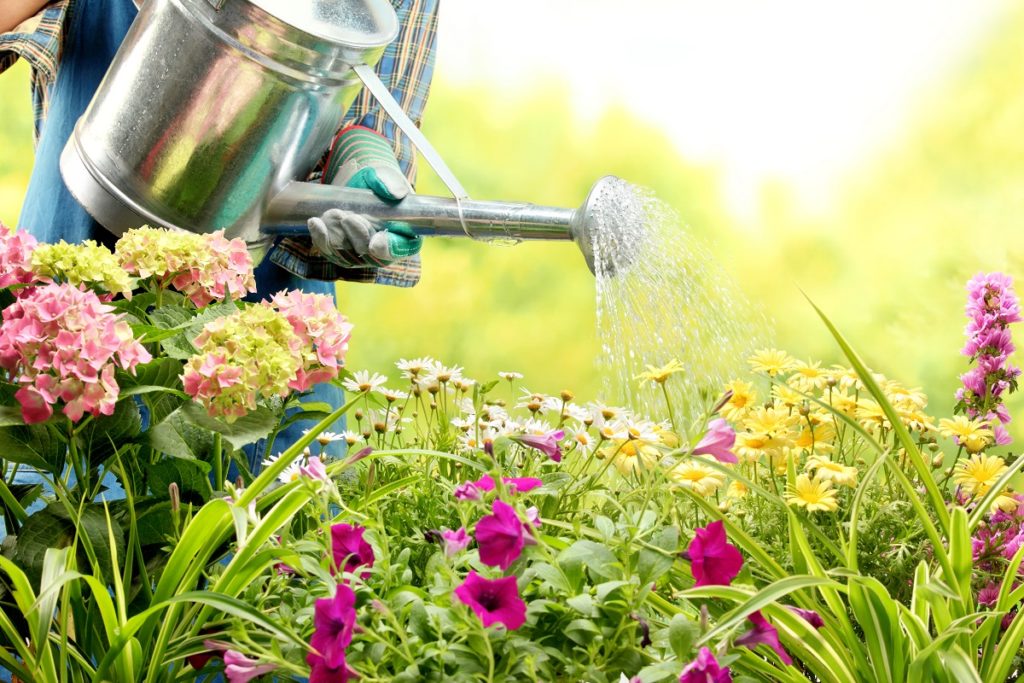So there you are, putting in all effort you have to make sure that your garden is healthy. You take care of your plants, ensure they get enough sunlight, and water them when needed. Unfortunately, a healthy garden comes with several problems, specifically, pests. To name a few, rabbits, raccoons, and beetles are the ones that will gradually show up in your precious yard trying to destroy everything you work hard for.
Let’s get one thing straight; there are different kinds of pests, which makes gardening extra challenging. The best way to protect your garden against pests is by keeping its pH levels balanced and the soil healthy.
However, healthy gardens can still attract uninvited guests. So here’s how you can keep your garden pest-free.
Ask Help From Birds
If you want to go all-natural in keeping your garden safe, make sure to invite bug-eating birds in your yard. You can attract these birds by placing a clean birdbath with water right in the middle f your garden.
Doing so will prevent the birds from picking the tomatoes in your garden. Make sure to set up a bird feeder near the birdbath as well. Keep the feeder filled with seeds to ensure that birds will keep coming back. As the birds make your garden their haven, they will feed on the insects that crawl around- definitely a win-win situation for you and the birds.
Make Use of Food-grade Diatomaceous Earth
Using Food-Grade diatomaceous earth is a great way to shoo away stinkbugs and other crawling insects naturally. You can sprinkle food0grade diatomaceous earth in your growing squash, watermelon, cantaloupe, vegetables, and fruits to ensure that insects won’t feed on them.
Cayenne Pepper Spray
To dissuade cabbage loopers from eating your Brussels sprouts or cabbage, create your very own cayenne pepper spray. Just add three teaspoons of cayenne pepper to a quart of water, mix well, transfer the solution in a spray bottle, and apply to stems, leaves, and ground the surrounding plants.
Enhance Your Garden Fence
Crawling insects aren’t the only ones you need to worry about. Some animals like rabbits, raccoons, and even deers are pretty fond of entering healthy gardens for food. If possible, improve your garden fence to prevent these animals make entering. Consider putting a metal fence to ensure its durability. Don’t worry about aesthetics; many cleaning solutions can help you make your metal fence look nice.
DIY Bug Spray

While you can always purchase a bug spray, there’s no harm in creating your own. All you need is an empty spray bottle, warm water, and two teaspoons of dish soap. Combine the water and dish soap in the bottle, and mix it before spraying it to your plants.
A friendly tip: Fill the bottle with water first before adding the soap to prevent bubbling.
Prevent Squirrels Using Fish Fertilizer
Fish fertilizer can stop squirrels from digging up your garden. Here, you need to mix a gallon of water with two tablespoons of fish fertilizer- spray the repellent in your garden rows.
Chopsticks to Prevent Cats and Dogs from Entering
If untrained, your pets, such as dogs and cats, can be pests too. Prevent them from entering your garden and destroying your flowers by distributing some pieces of chopsticks on the ground. The chopsticks will leave no room for your pets to get close to the plants and dig up the soil.
Onions and Garlic to the Rescue
Onions and garlic can be a natural insect deterrent if they are planted between plants. Insects don’t like their smell, so planting them between your precious plants is a great way to make use of them as you grow them.
Garden Plants that Repel Pests
Some plants can have natural deterring power. Consider putting these plants in your garden to prevent pests from taking over:
- Bay leaf- repels flies, ants, and cockroaches.
- Basil- natural repellent for mosquitoes and houseflies.
- Chives- deter carrot flies, Japanese beetles, mites, and aphids.
- Dill- repels squash bugs, aphids, and mites.
- Chrysanthemums- effective repellent for silverfish, ants, bed bugs, fleas, roaches, and mites.
- Garlic- a natural repellent for slugs, cabbage worms, and carrot flies.
- Lemongrass- its citronella smell can repel mosquitoes.
- Geraniums- can deter many types of insects such as leafhoppers and mosquitoes.
- Marigolds- deters rabbits, mosquitoes, and rabbits.
- Lemon thyme- attracts bees and keeps mosquitoes away.
- Parsley- effective repellent against beetles.
- Mint- deters mosquitoes and other insects.
- Nasturtiums- are trap crops that invite bugs to eat instead of cabbages, beans, and tomatoes.
- Thyme- a medicinal plant that can deter whiteflies, hornworms, earworms, and loopers.
- Petunias- controls asparagus beetles and tomato hornworms.
Hopefully, these tips can help keep your garden safe from pests and animals. Make sure to check your plants regularly to see if pests are eating them up.

